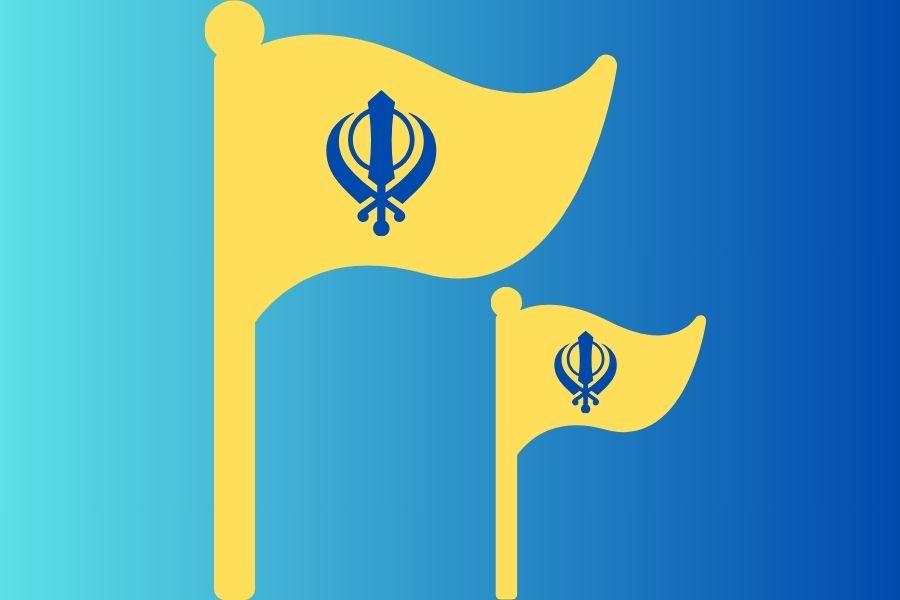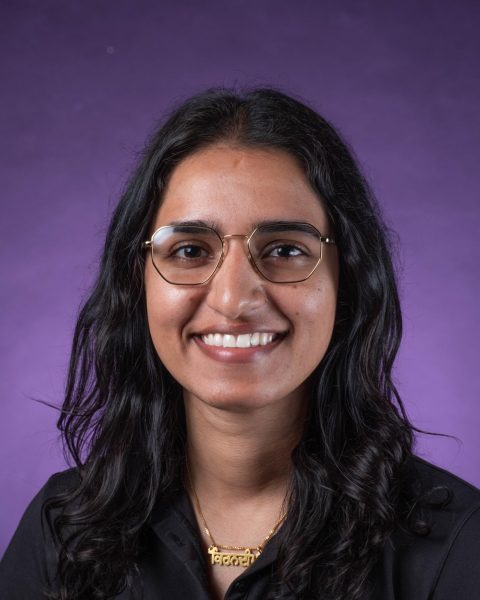On March 31, Sikhs in California will be able to vote in the Khalistan Referendum at the State Capitol Building in Sacramento. This comes after thousands of Sikh voters went to San Francisco’s Civic Center Plaza on Jan. 28 to cast their votes. The referendum is an unofficial vote for diasporic Sikhs on whether or not Punjab, a state in India, should separate and become Khalistan.
Sikhs of all generations in various locations throughout California waited long hours in January to vote. The symbolic referendum will present a case to the United Nations for the establishment of Khalistan, according to the Punjab Referendum Commission.
Bhupinder Singh, the president of the San Francisco State University SSA, said that the referendum movement allows newer generations to advocate and represent Sikhs in America.
“The increase in representation of Sikhs in the media is great because people can begin to understand why Sikhs advocate for their right to self-determination and sovereignty,” Singh said.
As a newer generation of Sikh students learn more about the issues in their homeland, many question what may happen in the coming years as this ongoing issue continues to sow conflict between the Sikh and Indian communities.
“As the Khalistan Referendum movement grows, we will hopefully start to see India’s government and its people realize that they need to stop what they are doing to Sikhs and just try and coexist peacefully,” Singh said. “At the end of the day, that’s all us Sikhs want – justice and peace. We will keep fighting the narrative and for justice as long as we live and breathe until we get what we ask for, peace and the right to exist.”
Harjot Kaur, the president of the University of California, Berkeley’s Sikh Student Association, attended the referendum and said she felt honored to witness the passion and dedication of the individuals who came together in solidarity to vote, although many had to wait long hours in line.
“This collective effort symbolizes hope,” Kaur said. “It demonstrates that no matter the challenges we face, our community will remain resilient and steadfast in our pursuit of justice and empowerment.”
Kaur said she is mindful of the situation’s complexity and recognizes individuals’ different perspectives. However, she sees the referendum as a significant and beneficial step towards Sikh independence.
“The collective pain from injustices suffered by Sikhs under the Indian government underscores the necessity for change,” Kaur said. “The creation of Khalistan signifies a heartfelt yearning for a nation where Sikhs can live freely and practice our faith without fear.”
Tensions between Sikhs and Hindus were at an all-time high in the 1980s, following decades of conflict between the Indian government and proponents of independence. Sikhs in Punjab have faced discrimination and continue to face issues with the Indian government, with the latest matter in question surrounding the farmers’ protests against the Indian government for their rights surrounding agricultural laws, fixed crop prices and income stability.
“The Indian government has portrayed Sikhs in such a demeaning way that people in this generation are starting to realize it’s false media because of the Sikh activists who have stood up for us and the increased amount of representation worldwide,” Singh said.
San Francisco was the seventh city in the world and the first in the United States to host the referendum movement, which has been in action since 2021. Although the Indian government asked to block the referendum, the United States allowed it, as it is legal under the First Amendment.
Kaur grew up outside Punjab, but her parents instilled the teachings and history of Punjab and Sikh people into her life from an early age.
“While those of us who grew up here might be more familiar with American norms, the referendum has opened our eyes to what’s happening in Punjab,” Kaur said. “It’s a reminder that our community’s struggles and aspirations transcend borders, uniting us in our quest for justice and empowerment.”
“I think the referendum movement as a whole is a giant step forward to seizing something that could finally be something that we can call our own,” said Gurjot Bains, the president of San Diego State University’s SSA. “It is something that is really beneficial and long overdue.”
Bains is adamant that while this entire process may not be linear, the people must fight for it and remain positive to achieve the results they hope for.
“All we should see is success. It should not even be in our minds that this will turn into failure,” Bains said. “In Sikhi, we believe in ‘Chardi Kala’ — that we should always be in high spirits no matter what the situation is, and that’s a fundamental part of our religion and what we stand for.”
Sahiba Kaur, the president of Orange Coast College’s SSA, said that the second part of the referendum voting process will send a strong message to both the U.S. and Indian governments.
“[The Khalistan Referendum] shows how desperately our rights mean to us and our willingness to sacrifice and do anything to secure them,” Kaur said. “It highlights our solidarity with the rights of our farmers, who have endured immense hardship during the Kisaan protests. It emphasizes that asking for our lands and rights back does not make us terrorists, but rather reflects our commitment to justice and dignity.”
“The more we advocate for ourselves, the more we can educate people about what is happening, who we are, and what we stand for,” Singh said.









Bob • Mar 26, 2024 at 11:34 pm
The author and individuals she has interviewed seem to be in utter denial and confusion. The Khalistan movement is a violent and terror related Cult.
Anyone that follows the fake narrative and history has a mental deficiency and need to study harder about the true and fake Sikh religion.. Uneducated and greedy fake Sikh’s have hijacked a peaceful religion and infused it with criminal conduct. The US authorities should note that in 1985 the Khalistan Sikhs in Canada, namely the World Sikh Organization and its militant wings Babbar Khalsa and ISYF- bombed Air India Flight 182 Kanishka killing 329 innocent victims. They also attempted to bomb Air India Flight 301 but the suitcase bomb detonated prematurely killing 2 victims. Total death toll 331 and the investigation continues Strong to this day due to the investigations being compromised by the Canadian Government and CSIS.